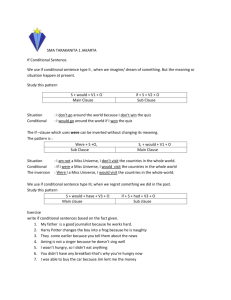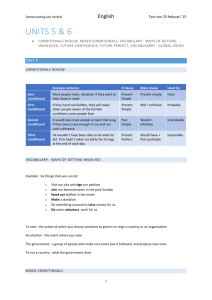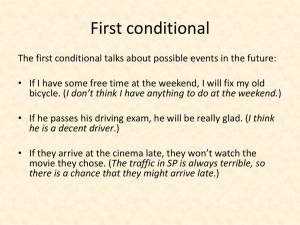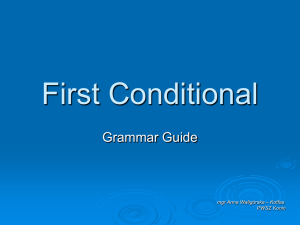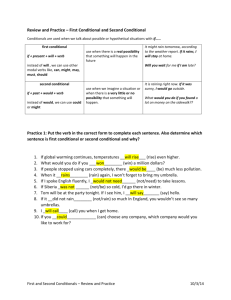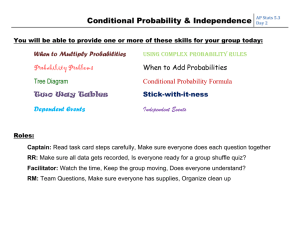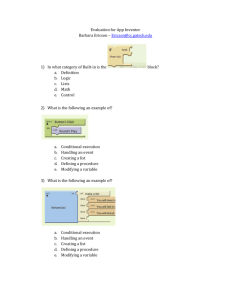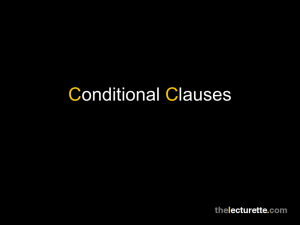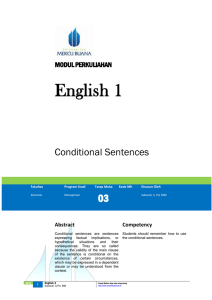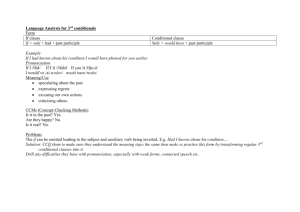Fristående konditionalsatser: syntaktisk emancipation och
advertisement
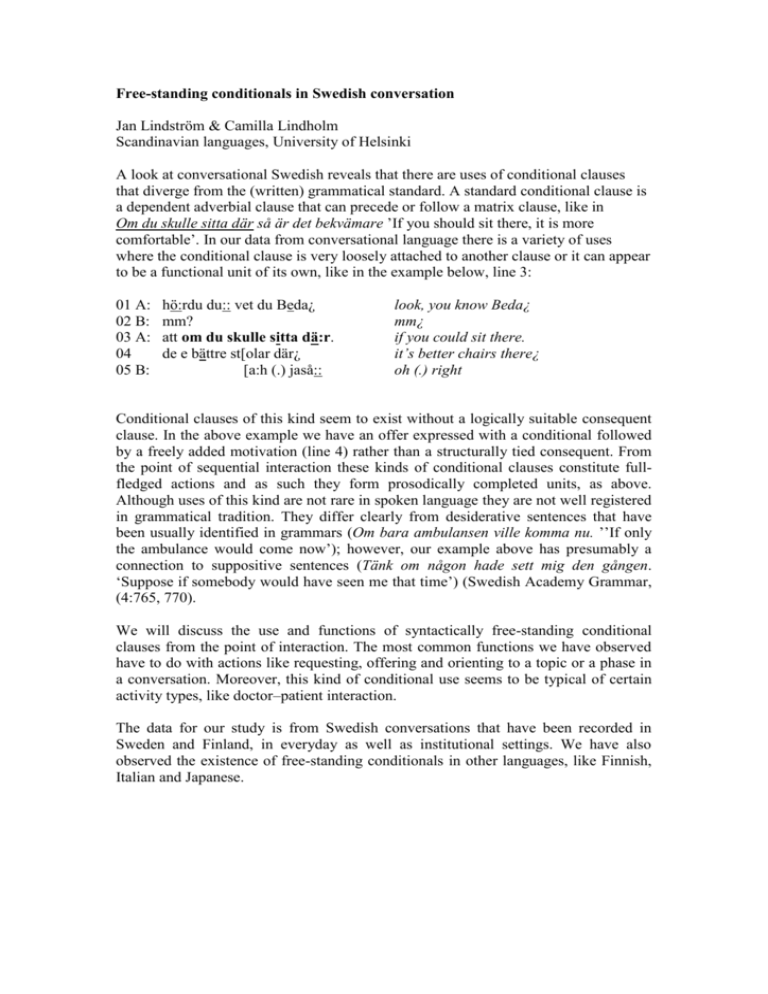
Free-standing conditionals in Swedish conversation Jan Lindström & Camilla Lindholm Scandinavian languages, University of Helsinki A look at conversational Swedish reveals that there are uses of conditional clauses that diverge from the (written) grammatical standard. A standard conditional clause is a dependent adverbial clause that can precede or follow a matrix clause, like in Om du skulle sitta där så är det bekvämare ’If you should sit there, it is more comfortable’. In our data from conversational language there is a variety of uses where the conditional clause is very loosely attached to another clause or it can appear to be a functional unit of its own, like in the example below, line 3: 01 A: 02 B: 03 A: 04 05 B: hö:rdu du:: vet du Beda¿ mm? att om du skulle sitta dä:r. de e bättre st[olar där¿ [a:h (.) jaså:: look, you know Beda¿ mm¿ if you could sit there. it’s better chairs there¿ oh (.) right Conditional clauses of this kind seem to exist without a logically suitable consequent clause. In the above example we have an offer expressed with a conditional followed by a freely added motivation (line 4) rather than a structurally tied consequent. From the point of sequential interaction these kinds of conditional clauses constitute fullfledged actions and as such they form prosodically completed units, as above. Although uses of this kind are not rare in spoken language they are not well registered in grammatical tradition. They differ clearly from desiderative sentences that have been usually identified in grammars (Om bara ambulansen ville komma nu. ’’If only the ambulance would come now’); however, our example above has presumably a connection to suppositive sentences (Tänk om någon hade sett mig den gången. ‘Suppose if somebody would have seen me that time’) (Swedish Academy Grammar, (4:765, 770). We will discuss the use and functions of syntactically free-standing conditional clauses from the point of interaction. The most common functions we have observed have to do with actions like requesting, offering and orienting to a topic or a phase in a conversation. Moreover, this kind of conditional use seems to be typical of certain activity types, like doctor–patient interaction. The data for our study is from Swedish conversations that have been recorded in Sweden and Finland, in everyday as well as institutional settings. We have also observed the existence of free-standing conditionals in other languages, like Finnish, Italian and Japanese.

